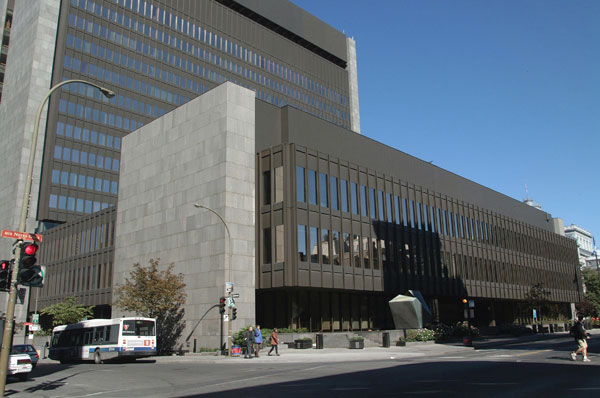CW: Mention of sexual assault and abuse
The Kanien’kehà:ka Kahnistensera (Mohawk Mothers) filed 141 pieces of evidence and three affidavits at the Montreal Superior Court on Aug. 25 in their ongoing legal battle with McGill over the New Vic project.
The Mothers presented this evidence in the hopes of winning an interlocutory injunction, which would halt renovation of the Royal Victoria Hospital and Allen Memorial Institute (AMI) grounds while court proceedings are underway. This suit is distinct from their earlier federal lawsuit, which was dropped in March 2022. The next hearing is scheduled for Oct. 26, but the Mohawk Mothers are concerned about McGill beginning construction prior to that date.
The affidavits submitted by the Mothers suggest there could be unmarked graves on the site left behind by Dr. Donald Ewen Cameron’s MK-Ultra experiments in the mid-1900s. One affidavit, written by anthropologist Philippe Blouin, examined past research about the possible burial site which faced difficulties due to the secretive nature of the MK-Ultra experiments and the destruction of some archival evidence.
Lana Ponting, one of the few remaining survivors of Dr. Cameron’s experiments, wrote another affidavit. Ponting was a patient at the AMI in 1958 and described her experiences as a subject of nonconsensual drug experiments, sexual violence, attempted brainwashing, and inhumane living conditions. In an interview with The McGill Tribune, Ponting explained that many victims of the experiments have not received justice for the abuse they faced, and pointed to the disregard of the Canadian government, which funded the experiments.
“It’s not just justice for me, it’s for all the victims of the Allen,” Ponting said. “I’m hoping that we can bring the attention to the government of Canada to fully realize they need to have an inquiry as to why this happened. Why did they allow this to go on for years and years?”
Since their legal struggle began in January 2022, the Mohawk Mothers have refused to hire lawyers, as self-representation is part of their cultural form of justice. In an interview with the Tribune, Kahentinetha, a Mohawk Mother, reiterated that they will not waver on this issue.
“We do not intend to change our minds at all on representing ourselves,” Kahentinetha said. “We intend to continue in our way to get justice for those children and for us, because we are all together. They are dead, we are alive, but they are still our relatives.”
Member of the Indigenous Law Association and Beausoleil First Nation, Daniel Tamblyn-Watts, 4L, expressed support for the Mohawk Mothers’ decision not to hire lawyers in an email to the Tribune.
“At a fundamental level the Canadian legal system with its roots in Western thought should not be determining the procedures or final judgments in cases like this one,” Tamblyn-Watts wrote. “Only Indigenous legal systems have the legitimacy and jurisdiction to effectively respond to these claims. Indigenous legal systems must be acknowledged and respected as standing on their own.”
While the Mohawk Mothers do not feel that McGill has listened to them, the administration maintains that it is working to address the concerns of Indigenous groups.
“We are committed to collaborating with governments, the Société Québécoise des infrastructures (SQI) […] and Indigenous community leadership to undertake the work necessary to investigate the concern,” wrote Frédérique Mazerolle, a McGill media relations officer, in an email to the Tribune.
The Mohawk Mothers announced in an Aug. 31 press release that they intend to conduct a search using Ground Penetrating Radar (GPR) sometime in September. They assured that the search will not be invasive or damage the grounds.
Those in need of support can reach out to the Montreal Indigenous Community Network by email at [email protected] or phone at 438-992-4589. A 24-hour helpline for residential school survivors and their families is available at 1-866-925-4419. For those seeking support for sexual violence, OSVRSE can be reached at 514-398-3954 or [email protected].











Pingback: Show up to the polls—and for your community - The McGill Tribune